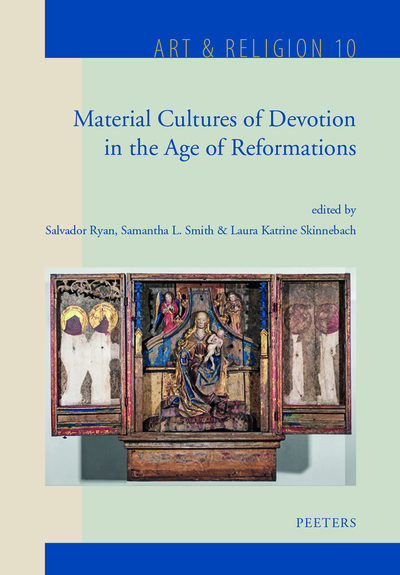- EAN13
- 9789042945715
- Éditeur
- PEETERS
- Date de publication
- 8 mars 2022
- Collection
- ART & RELIGION
- Nombre de pages
- 329
- Dimensions
- 25,5 x 18 x 2,5 cm
- Poids
- 840 g
- Langue
- eng
Material Cultures Of Devotion In The Age Of Reformations
Salvador Ryan
PEETERS
Prix public : 111,30 €
The sixteenth and seventeenth centuries in Northern Europe were characterized by enormous religious change. During this period new religious ideas and ideals gradually took shape and materialized in all aspects of religious life, both on a private level as well as in public and liturgical space. The fundamental question of how God could be experienced as present in the world, became – again – the center of lively debate. Lutheran, Calvinist, Roman Catholic and Anglican reformations – to mention just a selection of the different ideological movements in play during this period – challenged interpretations of the Bible, the sacraments, the communication of religious truth, the practice of devotion and the material expressions of faith. When looking at the European reformations from a transnational perspective, they stand forth as a bundle of fundamentally interwoven religious movements attempting to define their specific religious identity in terms of dissimilarity. Material Cultures of Devotion in the Age of Reformations explores how the visual and material cultures of Christian devotion were adapted, developed, transformed, and, in some cases, disappeared altogether, in the age of reformations, c.1500-1650 in Northern Europe.


















